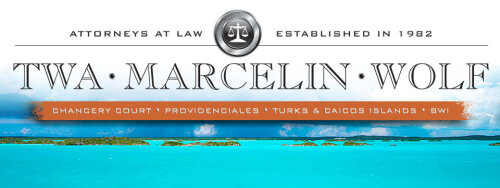Best Antitrust Lawyers in Turks and Caicos Islands
Share your needs with us, get contacted by law firms.
Free. Takes 2 min.
Or refine your search by selecting a city:
List of the best lawyers in Turks and Caicos Islands
About Antitrust Law in Turks and Caicos Islands:
Antitrust law in the Turks and Caicos Islands aims to promote fair competition and prevent monopolies in the marketplace. These laws are designed to protect consumers and ensure that businesses operate in a competitive environment.
Why You May Need a Lawyer:
You may need a lawyer in Antitrust cases if you believe that a company is engaging in anti-competitive practices, such as price-fixing, bid-rigging, or monopolistic behavior. A lawyer can help you navigate the legal process and ensure your rights are protected.
Local Laws Overview:
Key aspects of local laws related to Antitrust in Turks and Caicos Islands include the Competition Ordinance, which prohibits anti-competitive agreements and abuse of dominant positions. The Competition Commission oversees the enforcement of these laws and investigates complaints of anticompetitive behavior.
Frequently Asked Questions:
1. What is considered anti-competitive behavior under Antitrust laws?
Anti-competitive behavior includes actions such as price-fixing, bid-rigging, market allocation, and abuse of dominant positions.
2. How can I file a complaint with the Competition Commission?
You can file a complaint with the Competition Commission by submitting a written complaint detailing the alleged anti-competitive behavior.
3. What are the penalties for violating Antitrust laws in Turks and Caicos Islands?
Penalties for violating Antitrust laws may include fines, injunctions, and other remedies to ensure compliance with the law.
4. Can individuals file a lawsuit for Antitrust violations?
Yes, individuals can file a lawsuit for Antitrust violations, either individually or as part of a class action lawsuit.
5. How long does it take to resolve an Antitrust case?
The timeframe for resolving an Antitrust case can vary depending on the complexity of the case and other factors. It is recommended to consult with a lawyer for a more accurate timeline.
6. What evidence is needed to prove an Antitrust violation?
Evidence needed to prove an Antitrust violation may include documents, emails, witness statements, and other relevant information to support your case.
7. Is there a statute of limitations for filing an Antitrust lawsuit?
Yes, there is a statute of limitations for filing an Antitrust lawsuit. It is advisable to consult with a lawyer to ensure your claim is filed within the required timeframe.
8. Can businesses be held liable for Antitrust violations?
Yes, businesses can be held liable for Antitrust violations, and may face fines, injunctions, and other penalties for engaging in anti-competitive behavior.
9. What role does the Competition Commission play in enforcing Antitrust laws?
The Competition Commission is responsible for enforcing Antitrust laws in the Turks and Caicos Islands, investigating complaints of anti-competitive behavior and taking enforcement action when necessary.
10. How can a lawyer help me with an Antitrust case?
A lawyer can help you navigate the legal process, gather evidence to support your case, and represent you in court to ensure your rights are protected in Antitrust cases.
Additional Resources:
If you need legal advice or assistance with an Antitrust case in the Turks and Caicos Islands, you can contact the Competition Commission or consult with a local law firm specializing in Antitrust law.
Next Steps:
If you believe you have been a victim of Antitrust violations or need legal assistance with an Antitrust case, it is recommended to contact a lawyer to discuss your options and rights under the law.
Lawzana helps you find the best lawyers and law firms in Turks and Caicos Islands through a curated and pre-screened list of qualified legal professionals. Our platform offers rankings and detailed profiles of attorneys and law firms, allowing you to compare based on practice areas, including Antitrust, experience, and client feedback.
Each profile includes a description of the firm's areas of practice, client reviews, team members and partners, year of establishment, spoken languages, office locations, contact information, social media presence, and any published articles or resources. Most firms on our platform speak English and are experienced in both local and international legal matters.
Get a quote from top-rated law firms in Turks and Caicos Islands — quickly, securely, and without unnecessary hassle.
Disclaimer:
The information provided on this page is for general informational purposes only and does not constitute legal advice. While we strive to ensure the accuracy and relevance of the content, legal information may change over time, and interpretations of the law can vary. You should always consult with a qualified legal professional for advice specific to your situation.
We disclaim all liability for actions taken or not taken based on the content of this page. If you believe any information is incorrect or outdated, please contact us, and we will review and update it where appropriate.
Browse antitrust law firms by city in Turks and Caicos Islands
Refine your search by selecting a city.














